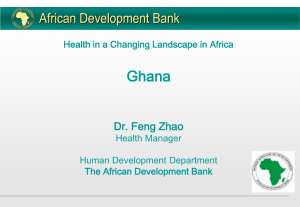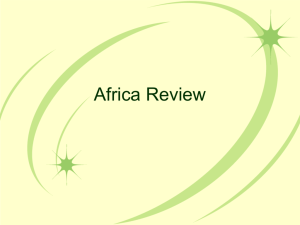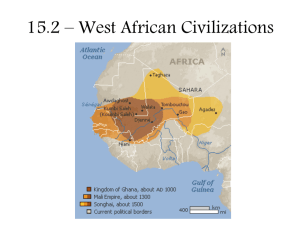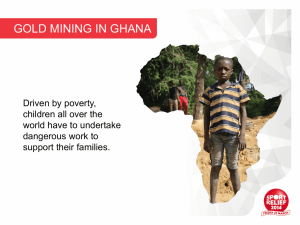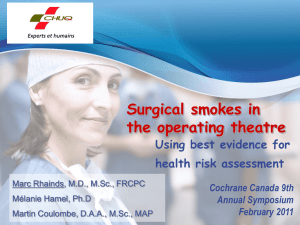Charletta Ayers- IHCV Global 2014 Poster
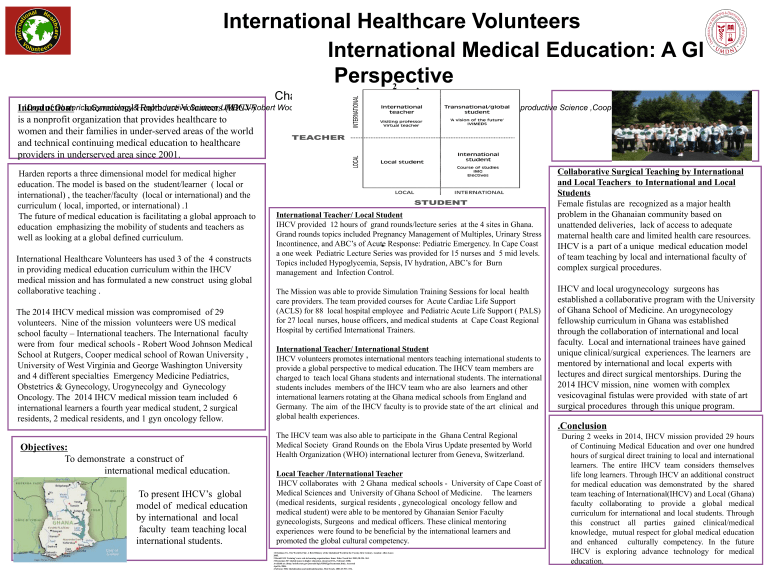
International Healthcare Volunteers
International Medical Education: A Global
Perspective
2
.
Charletta Ayers, MD MPH. James Aikins MD.
Introduction:
International Healthcare Volunteers (IHCV) is a nonprofit organization that provides healthcare to women and their families in under-served areas of the world and technical continuing medical education to healthcare providers in underserved area since 2001.
Harden reports a three dimensional model for medical higher education. The model is based on the student/learner ( local or international) , the teacher/faculty (local or international) and the curriculum ( local, imported, or international) .1
The future of medical education is facilitating a global approach to education emphasizing the mobility of students and teachers as well as looking at a global defined curriculum.
International Healthcare Volunteers has used 3 of the 4 constructs in providing medical education curriculum within the IHCV medical mission and has formulated a new construct using global collaborative teaching .
International Teacher/ Local Student
IHCV provided 12 hours of grand rounds/lecture series at the 4 sites in Ghana.
Grand rounds topics included Pregnancy Management of Multiples, Urinary Stress
.
a one week Pediatric Lecture Series was provided for 15 nurses and 5 mid levels.
Topics included Hypoglycemia, Sepsis, IV hydration, ABC’s for Burn management and Infection Control.
The 2014 IHCV medical mission was compromised of 29 volunteers. Nine of the mission volunteers were US medical school faculty – International teachers. The International faculty were from four medical schools - Robert Wood Johnson Medical
School at Rutgers, Cooper medical school of Rowan University ,
University of West Virginia and George Washington University and 4 different specialties Emergency Medicine Pediatrics,
Obstetrics & Gynecology, Urogynecolgy and Gynecology
Oncology. The 2014 IHCV medical mission team included 6 international learners a fourth year medical student, 2 surgical residents, 2 medical residents, and 1 gyn oncology fellow.
The Mission was able to provide Simulation Training Sessions for local health care providers. The team provided courses for Acute Cardiac Life Support
(ACLS) for 88 local hospital employee and Pediatric Acute Life Support ( PALS) for 27 local nurses, house officers, and medical students at Cape Coast Regional
Hospital by certified International Trainers.
International Teacher/ International Student
IHCV volunteers promotes international mentors teaching international students to provide a global perspective to medical education. The IHCV team members are charged to teach local Ghana students and international students. The international students includes members of the IHCV team who are also learners and other international learners rotating at the Ghana medical schools from England and
Germany. The aim of the IHCV faculty is to provide state of the art clinical and global health experiences.
Collaborative Surgical Teaching by International and Local Teachers to International and Local
Students
Female fistulas are recognized as a major health problem in the Ghanaian community based on unattended deliveries, lack of access to adequate maternal health care and limited health care resources.
IHCV is a part of a unique medical education model of team teaching by local and international faculty of complex surgical procedures.
IHCV and local urogynecology surgeons has established a collaborative program with the University of Ghana School of Medicine. An urogynecology fellowship curriculum in Ghana was established through the collaboration of international and local faculty. Local and international trainees have gained unique clinical/surgical experiences. The learners are mentored by international and local experts with
.
2014 IHCV mission, nine women with complex vesicovaginal fistulas were provided with state of art surgical procedures through this unique program.
Objectives:
To demonstrate a construct of international medical education. and
To present IHCV’s global model of medical education by international and local faculty team teaching local international students.
The IHCV team was also able to participate in the Ghana Central Regional
Medical Society Grand Rounds on the Ebola Virus Update presented by World
Health Organization (WHO) international lecturer from Geneva, Switzerland.
Local Teacher /International Teacher
IHCV collaborates with 2 Ghana medical schools - University of Cape Coast of
Medical Sciences and University of Ghana School of Medicine. The learners
(medical residents, surgical residents , gynecological oncology fellow and medical student) were able to be mentored by Ghanaian Senior Faculty gynecologists, Surgeons and medical officers. These clinical mentoring experiences were found to be beneficial by the international learners and promoted the global cultural competency.
1 Friedman TL. The World Is Flat: A Brief History of the Globalized World in the Twenty-first Century. London: Allen Lane;
2005.
2 Bartell SM. Training’s new role in learning organizations. Innov Educ Teach Int. 2001;38:354–363.
3 Heyneman SP. Global issues in higher education. eJournal USA, February 2006.
Available at: (http://usinfo.state.gov/journals/itgic/0206/ijge/heyneman.htm). Accessed
April 6, 2006.
4 Schwarz MR. Globalization and medicaleducation. Med Teach. 2001;23:533–534.
.Conclusion
During 2 weeks in 2014, IHCV mission provided 29 hours of Continuing Medical Education and over one hundred hours of surgical direct training to local and international learners. The entire IHCV team considers themselves life long learners. Through IHCV an additional construct for medical education was demonstrated by the shared team teaching of International(IHCV) and Local (Ghana) faculty collaborating to provide a global medical curriculum for international and local students. Through this construct all parties gained clinical/medical knowledge, mutual respect for global medical education and enhanced culturally competency. In the future
IHCV is exploring advance technology for medical education.


